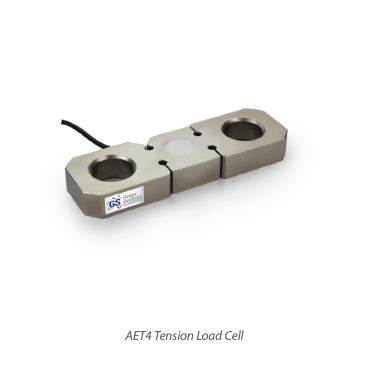Load cells, or commonly known as load cell transducers, are critical yet significant components in most industrial weighing systems. By definition, load cells are sensors that measure and convert weight- or more accurately, directional force into an electrical signal. Designed to be a highly accurate device, load cells can be used to measure compression, tension, shear forces or bending.
How Does A Load Cell Work?
Within the load cell structure are groups of areas designed to be ‘stressed’ when a load or force is applied. These areas are bonded by thin elastic materials called ‘Strain Gauges’ made up of stainless steel and are fixed inside the load cells. Whenever a force or pressure is applied on the load cell, it bends or stretches causing the strain gauge to move along with it. When the cross-section of the strain gauge changes, its electrical resistivity also changes and gets altered, thereby changing the output voltage.

Why Do We Use Load Cells?
Load cells find their application in a variety of industries that demand accuracy and precision, which means that they play such an important role in modern commerce. Global sales still rely on precise weight measurement, Industrial companies require precise quality control systems, while Manufacturing companies need consistency and safety processes. Load cells are also widely used in Medical and Laboratory settings to achieve accurate measurements for a wide variety of scientific and research purposes. From measuring things as small as a needle to as heavy as big drilling machines, you will find load cells everywhere. Compared to traditional mechanical platform weighing devices, load cells are proven to be a far more reliable and cost-effective choice for companies in the long-run.

How Are Load Cells Classified?
Load cell are available in different configurations and standards, depending on the intended application and environment. Included in the various types of load cell available, varying models and styles can be distinguished in two key ways:
- Through the specific method they use to detect weight (includes compression load cell, tension load cell and other measurement variations)
- Through the type of output signal generated (includes hydraulic load cell, piezoelectric load cell and various other configurations)
Compression Load Cell:
Built to measure downward or lateral ‘pushing’ forces only, just like any standard weighing scale or platform, Compression Load cell are sometimes referred to as ‘column load cells’, ‘pancake load cells’ or ‘donut load cells’. They usually contain an integral button design, making them the simplest and most stable type of load cell, ideal for use in limited space weighing applications.

Tension Load Cell:
Designed to measure tensile or ‘pulling’ loads, they are ideal for space restricted environments with threaded ends to help facilitate easy installation. The most common example would be a hanging digital scale at a grocery store fresh produce aisle.

S-Beam Load Cell:
The S-Beam load cell gets its name from its S shape, with force sensors that can provide an output if under tension or compression. They are probably the most commonly used load cells, they are extremely flexible and can be used in a wide variety of applications.

Bending Beam Load Cell:
Bending Beam load cell tend to offer high amounts of strain or flex at relatively low forces, which suits them for lower capacity applications. Bending beam load cell work when certain parts of the load cell body bend or curve in response to an applied load.

Shear Beam Load Cell:
Known as a universal load cell for bigger industrial applications, Shear Beams are used in industries in which goods are produced or transformed. Shear Beams are ideal for a wide range of applications such as platform scales or any other fixed, suspended weight systems, and low profile installations.

Canister Load Cell:
Used for single and multi-weighing applications, Canister load cell feature an all stainless steel design and are hermetically sealed (airtight) for wet areas. They are easy-to-install and are used in applications such as weighing, quality control and material test machines.

The industrial world might be incredibly confusing for some people. Those who work in the field won’t always know how to explain terms like load cell or torque sensors in a way that would make sense for others. If you want to know more about load cell and the weighing industry in general, the dedicated engineers from Gedge Systems will be pleased to help you out.
GEDGE SYSTEMS
27 Rhur Street,
Dandenong South VIC 3175
Australian Contact (03) 9791 8944
International Contact +61 3 9791 8944

